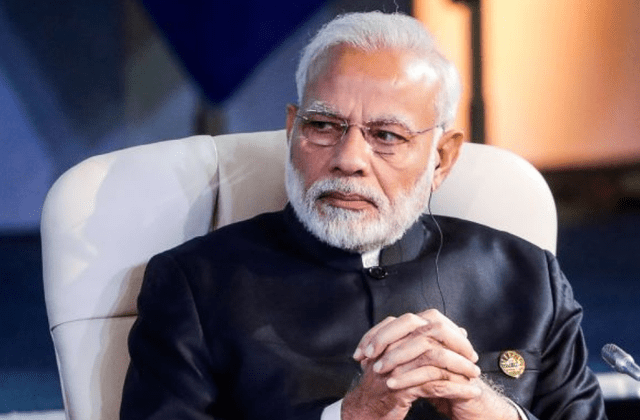Amid election fever, Modi clashes with opposition states in a battle for India’s future
In the sprawling democracy of India, Prime Minister Narendra Modi’s centralization push for governance is increasingly coming into conflict with opposition-controlled states. This battle, which unfolds against the backdrop of the upcoming national elections, underscores a critical struggle for the country’s future direction, both politically and economically.
Modi’s tenure has been marked by a relentless drive to consolidate power, bending various pillars of Indian democracy to align with his Hindu nationalist agenda. However, some of India’s most affluent states remain bastions of resistance, serving as the frontline in the ongoing tug-of-war over India’s democratic essence and its federal structure.
Embed from Getty ImagesThe heart of the conflict lies in the accusation by opposition states that Modi’s administration is engaging in practices reminiscent of colonial oversight. This includes withholding federal funds for key projects, targeting opposition leaders through legal troubles while protecting defectors to Modi’s Bharatiya Janata Party (BJP), and sowing political instability to disrupt governance in non-BJP states.
These tensions are not just political rhetoric but have tangible impacts on India’s development trajectory. For instance, states like Tamil Nadu and Kerala are facing hurdles in expanding infrastructure and managing finances due to perceived federal obstructionism. In Maharashtra, political upheaval engineered by the central government has shifted the power dynamics, allowing the BJP to gain a foothold through coalition politics.
This centralization push by Modi is criticized for potentially stunting India’s growth, especially in regions like southern India, which have historically led the country’s charge towards modernization and economic success. The South’s development model, characterized by investments in education, healthcare, and infrastructure, is at odds with the central government’s one-size-fits-all approach, which critics argue neglects the unique needs and achievements of these states.
Amid this power struggle, the concept of a “double engine” government is touted by Modi, suggesting that states governed by the BJP would benefit from aligned priorities and streamlined development projects. However, this proposition comes with strings attached, often requiring state governments to capitulate to central branding and Modi’s political narrative.
The resistance from opposition states has sparked debates about India’s federal structure, with some regional leaders threatening drastic measures if perceived injustices persist. The friction is particularly pronounced in the south, where there’s a strong sentiment against the imposition of Hindi as a national language and concerns over the fair distribution of parliamentary seats and federal revenues.
As India stands on the cusp of another electoral battle, the showdown between Modi and the opposition states encapsulates a broader debate about the country’s democratic principles, regional autonomy, and the path to economic prosperity. The outcome of this struggle will not only shape the immediate political landscape but also determine the long-term trajectory of India’s development model and its place on the global stage.
